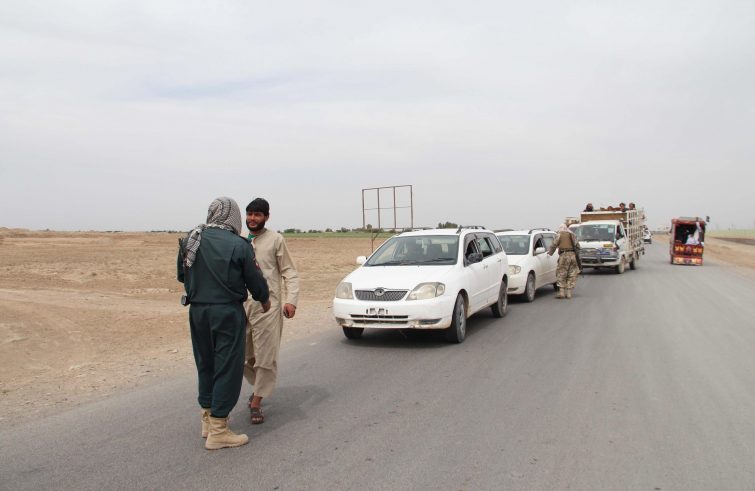
President Joe Biden announced the withdrawal of US troops from Afghanistan, thereby ending America’s longest war, which claimed the lives of more than 2,400 soldiers. “I am now the fourth United States president to preside over an American troop presence in Afghanistan. Two Republicans. Two Democrats. I will not pass this responsibility to a fifth”, Biden said announcing the decision. The withdrawal will be completed by September 11, marking the 20th anniversary of the terror attacks on the Twin Towers which sparked off (on October 7, 2001) Operation Enduring Freedom that overthrew the Taliban regime. The decision was endorsed by NATO during a joint meeting of Foreign and Defence Ministers of Allied nations with NATO Secretary General Jens Stoltenberg in Brussels. US Secretary of State Tony Blinken and Secretary of Defense Lloyd Austin were also present at the NATO headquarters. Italian Foreign Minister Luigi Di Maio attended the meetings and announced a roadmap for the return of some 800 Italian soldiers to their home country. Italian troops have been deployed in Afghanistan since November 18, 2001. Fifty-two Italian soldiers have lost their lives. The withdrawal of Italian troops is planned to begin on May 1st.
 In the light of the above, SIR interviewed Claudio Bertolotti, Director at START InSight and senior researcher for the “5+5 Defence Initiative”. He served as NATO Counter-intelligence analyst and Section Chief in Afghanistan.
In the light of the above, SIR interviewed Claudio Bertolotti, Director at START InSight and senior researcher for the “5+5 Defence Initiative”. He served as NATO Counter-intelligence analyst and Section Chief in Afghanistan.
How do you view the decision to withdraw from Afghanistan? Doesn’t it entail a risk of leaving the country in the grip of instability and insecurity?
I think that the Biden administration is aware of this, as were its predecessors. To date no one, perhaps only Donald Trump, had the courage to announce a veritable US Mission and NATO withdrawal. Biden took this step in the wake of Trump’s decisions and the backing of US public opinion.
The extremely sad, and equally tragic aspect is that Afghanistan will in fact be left out in the cold since, over and above the beautiful words about diplomatic support and continued proximity to the government authorities in Kabul, in the absence of a military instrument guaranteeing physical protection, the withdrawal will open the doors to the Taliban and lay the grounds for yet another stage of civil war after decades of simmering tensions throughout the country.
This withdrawal seems to translate into defeat and evoke a new Vietnam for the US…
A new Vietnam, much more costly than the real one. I also think that the scheduled final withdrawal date of September 11, that marked the attack on the Twin Towers, – which the US responded to with the notorious and unfortunate war on terror and export of democracy – is a regrettable choice.
Twenty years later, September 11, 2021, we will see the confirmation of this war’s failure.
This withdrawal is a defeat also for NATO…
For the Atlantic Alliance, this withdrawal is a consistent choice because it was unanimously agreed upon. In fact, NATO had formerly ended its operations on the Afghan battlefield with the transition (1 January 2015) from the ISAF mission to the ‘no-combat’ Resolute Support Mission, which focuses on Training, Advising, & Assisting the Afghan Security Institutions and Forces. With yesterday’s withdrawal, NATO officially confirmed this disengagement.
 What does the withdrawal from Afghanistan mean for Italy, with a mission that claimed more than 50 lives?
What does the withdrawal from Afghanistan mean for Italy, with a mission that claimed more than 50 lives?
Italy has drawn extensive combat and support experience from this mission, contributing to the strengthening of the national military instrument. In terms of international relations
Italy has maintained its active role in the NATO, never failing to ensure its support, also in numerical terms.
Italy has always been among the top five contingents throughout the course of missions in Afghanistan. Our country emerges with a stronger military capability and a stronger image in international politics. However, it is regrettable that we made an important contribution to an experience that failed in terms of its intended goals.
We participated with our allies in a lost war with great regret and disappointment for what we had imagined for a devastated country like Afghanistan.
NATO Secretary General Jens Stoltemberg said that the withdrawal “is not the end of our relationship with Afghanistan. But rather the start of a new chapter.” Do you agree?
NATO will not succeed in ensuring a significant contribution to the security and stability of Afghanistan. It failed to do so at the peak of its commitment, when its 140,000 troops were deployed on the ground, and it will not succeed today with its withdrawal by September 11.
 Could cooperation also be affected by the withdrawal, given the lack of security on the ground?
Could cooperation also be affected by the withdrawal, given the lack of security on the ground?
It should be remembered that before the potential outbreak of a civil war, the Taliban will be involved in some form of government of national unity. In so doing, the Taliban will guarantee the continuation of international aid to the country. This will be the compromise solution brokered by the international community with the next interim government in Afghanistan.
The question is whether – or how long – this interim phase will last, given that there are many anti-Taliban pressures and militias controlled by past warlords and new drug lords, former mujaheddin, who have an interest in retaining control of the territory where their illicit trafficking can flourish.
These include the Taliban, who in turn seek to control the Helmand and Kandahar provinces where the production of opiates is the greatest in terms of the products’ refinement and processing.












